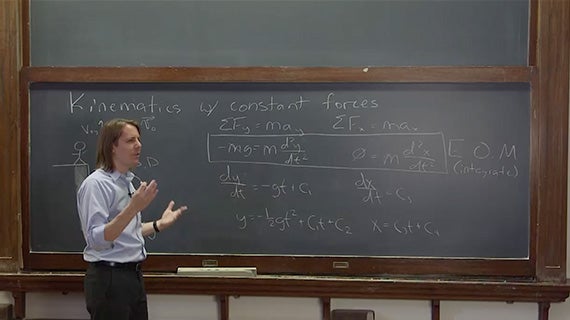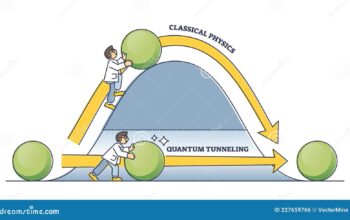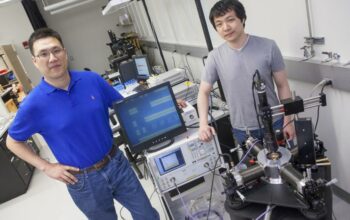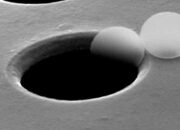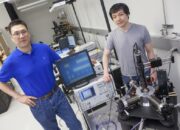Choosing a specialization within the expansive field of physics is a decision that requires careful consideration, as it will significantly shape one’s academic and professional journey. Physics itself is a discipline that encompasses a variety of subfields, each offering unique perspectives and applications. In this exploration, we will examine several prominent specializations within physics, elucidating their distinctive characteristics and the types of content one might expect from engagement in each area.
Astronomy and Astrophysics
Astronomy and astrophysics represent one of the most captivating fields of physics, focusing on celestial phenomena and the laws governing the universe. Practitioners in this domain explore fundamental questions about the origins and fate of galaxies, stars, and planets. Coursework typically includes rigorous studies in celestial mechanics, relativity, and cosmology. Content often features advanced mathematical modeling, observational techniques, and the interpretation of data from telescopes and other observational tools.
Participants in this specialization can expect to engage with topics such as dark matter, black holes, and the cosmic microwave background. Research initiatives might involve collaborations with observatories or space agencies, pushing the boundaries of our understanding of the cosmos. This field appeals to those intrigued by the vastness of the universe and its many mysteries.
Condensed Matter Physics
Condensed matter physics is another vital specialization, deeply rooted in the study of the physical properties of solids and liquids. This field examines the emergent behaviors of materials and their interactions at a molecular and atomic level. Students may delve into areas such as superconductivity, magnetism, and the phenomena of quantum phase transitions.
Engagement in condensed matter physics brings exposure to experimental techniques like X-ray diffraction, electron microscopy, and spectroscopy. Scholars are tasked with exploring the correlations between micro-structural arrangements and macroscopic properties, which can lead to innovations in material science, nanotechnology, and electronic devices. Thus, individuals drawn to tangible applications and experimental techniques may find this specialization particularly rewarding.
Particle Physics
Particle physics is a discipline that seeks to unravel the fundamental constituents of matter and the forces that govern their interactions. Often conducted at high-energy particle accelerators, this specialization delves into the myriad particles that compose the universe, including quarks, leptons, and bosons. Informative courses in this field involve in-depth studies of the Standard Model and investigations into phenomena beyond it, such as supersymmetry and dark matter interactions.
Researchers can expect to partake in theoretical simulations, as well as practical experiments in particle colliders. The content may include the intricacies of gauge theories, symmetry breaking, and quantum field theory. Such a path is well-suited for those passionate about fundamental questions regarding the structure of matter and the forces shaping the universe.
Quantum Mechanics
Quantum mechanics serves as the foundation for numerous advanced topics within physics, thus functioning as a critical area of specialization. This field probes the behavior of particles at the subatomic level, challenging classical intuitions with its counterintuitive principles, such as superposition and entanglement. Mastery in this domain necessitates a robust understanding of wave-particle duality and the probabilistic nature of quantum states.
Content within quantum mechanics encompasses both theoretical frameworks and experimental validations. Scholars may engage in quantum computational theories, mitigating decoherence, or investigating quantum cryptography. Those intrigued by the philosophical implications as well as the technical aspects of reality at its most fundamental level will find quantum mechanics a compelling specialization.
Optics and Photonics
Optics and photonics is a vibrant field that explores light’s properties and its interaction with various materials. From fundamental studies of reflection and refraction to innovative applications in telecommunications and laser technology, this specialization offers both theoretical and practical insights. Coursework typically covers areas such as geometrical optics, wave optics, and the science of photonic devices.
Students may find themselves immersed in experimental setups to investigate phenomena such as interference, diffraction, and polarization of light. Content could also extend to applications in imaging technologies and fiber optics communications. For those captivated by the physics of light and its technological implications, this area presents numerous opportunities for exploration and innovation.
Biophysics
Biophysics marks a fascinating interdisciplinary field that merges the principles of physics with biological systems. This specialization examines the physical mechanisms underpinning biological processes, from protein folding to cellular signaling. Researchers in biophysics employ quantitative techniques to elucidate the dynamic interactions within molecular systems, linking physical laws to biological phenomena.
Content in biophysics includes a combination of biochemistry, molecular biology, and statistical mechanics. Scholars may engage in experimental studies involving spectroscopy, imaging techniques, and computational modeling to investigate biomolecular structures. For those eager to bridge the gap between the physical sciences and life sciences, biophysics offers a unique and impactful path.
Conclusion
Ultimately, the selection of a physics specialization should align with individual interests, strengths, and career aspirations. Each subfield offers a rich tapestry of knowledge and application, preparing students for diverse roles in academia, industry, and research institutions. As the realm of physics continues to evolve, the intersections of these specializations may yield innovative solutions to contemporary challenges, making this an exhilarating time to delve into the diverse specializations within physics.
